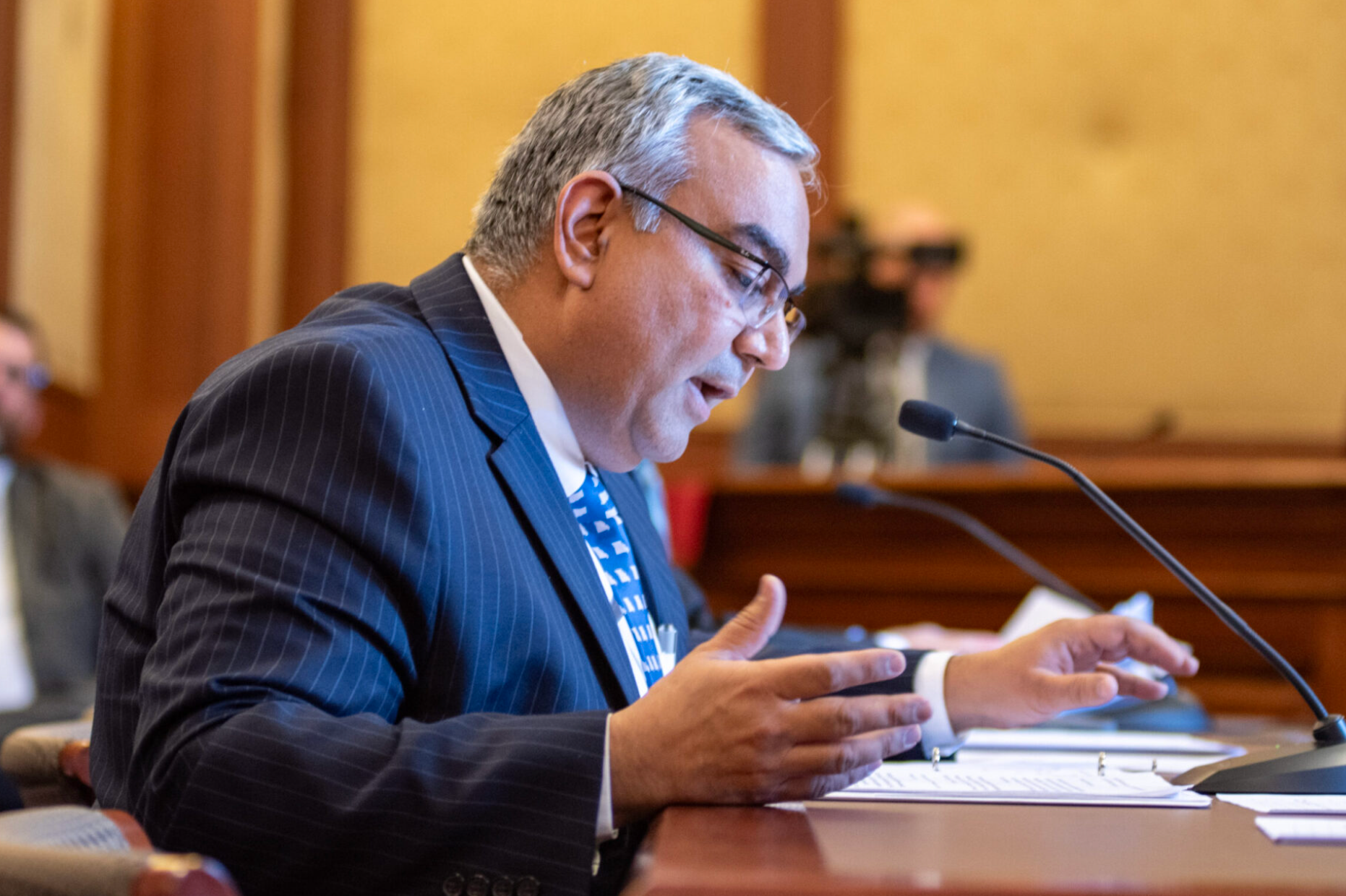
The names of MOScholars donors and contribution amounts were once easily available to the public. But the Missouri Treasurer’s Office says that was never supposed to be the case
By: Annelise Hanshaw
Missouri Independent
Who’s funding a state’s tax credit program for private school tuition is no longer available through Missouri’s transparency portal, following a decision by the State Treasurer’s Office to permanently remove the information.
Donors and their contribution amounts were available July 2, 2024, when The Independent accessed the information and published a report three days later showing the largest donors to the program at the time were a Fortune 500 health care corporation, a cable company and the founding family of the Kansas City Chiefs.
When the article was released, the State Treasurer’s Office called The Independent to ask how the information was accessed. The office didn’t seem to be aware that the list was available on a state-run website detailing state spending.
According to Internet Archive’s Wayback Machine, donor information was wiped by the end of the month.
Jackson Bailey, chief of staff to Missouri Treasurer Vivek Malek, chalked the situation up to a “clerical error,” saying the office never intended the information to be posted in the first place.
The office declined to answer further questions on the removal, including whether or not the information is available upon request.
In 2022, Missouri lawmakers passed a law to shield nonprofits from being forced to disclose donor information. And it was quickly used to conceal public records, such as then-Gov. Mike Parson redacting the names of donors and attendees of his holiday gala.
A year later, lawmakers approved a fix to the law clarifying how it should be implemented.
Missouri’s tax-credit scholarship program, called MOScholars, is set up using state-approved nonprofits. Donors apply for a tax credit through the State Treasurer’s Office and donate to the nonprofits, which are called educational assistance organizations. At tax time, they are able to deduct the donation amount from their state tax obligations, so long as it’s less than half of their total bill.
Because the program is set up using private nonprofit organizations as an intermediary, the state might be barred, or at least exempt, from disclosing the donation information, according to Dave Roland, director of litigation at the Freedom Center of Missouri.
Programs like MOScholars, Roland said, are “specifically designed to have the funding treated as private money rather than public money.”
“Due to the connection to a government-created program, the government might be able to require public disclosure of the persons donating to these programs (and thus receiving the tax credits), but they are not obligated to make this information public if they don’t want to,” he wrote in an email.
But for those wary about the MOScholars program, less transparency only makes frustrations worse.
Senate Minority Leader Doug Beck, a Democrat from Affton, has been a vocal critic of MOScholars and has sought clarity from program administrators, including Malek. In 2024, Beck asked for “all the data” the office had compiled on MOScholars and received a screenshot of a webpage with basic demographic information.
“We should have accountability and transparency,” he told The Independent. “We don’t know where the money is coming from. We don’t know how much money it is. How do we know it’s getting where it is supposed to go?”
He pointed to a report from the State Auditor’s Office released earlier this month which called out Malek’s office for depositing $35 million of general revenue into the wrong fund.
The audit also identified a lack of transparency in the administration of the MOScholars program. The treasurer’s office wasn’t hiring annual audits of the program as required and it missed inconsistencies in quarterly reports from educational assistance organizations.
Trent Blair, director of programs in the State Treasurer’s Office, told The Independent that the office has already rectified this mistake and recently hired an auditing company.
The demand for more oversight of MOScholars has accelerated in recent months, with state lawmakers passing a $51 million direct appropriation to the program. A lawsuit filed at the beginning of July is challenging the constitutionality of the funding windfall.
But Blair, when asked if Missourians should feel safe handing over $50 million in the wake of oversight issues, said taxpayers could trust the state.
“There are no fewer accountability issues with this program than any other,” he said in an email. “So Missourians should feel confident about the fiscal responsibility associated with this appropriation.”








